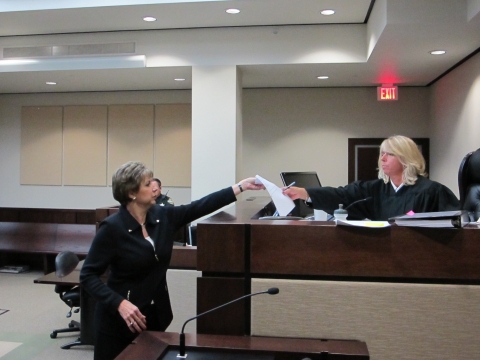Lowndes County Schools Assistant Superintendent Troy Davis gave his personal opinion: “it’s about control”. The charter school amendment on the November ballot is not about charter schools, which any community in the state can create now. It’s about control by the state of local schools and resources.
Dr. Davis pointed out Georgia already has 350 charter schools, up from
160 three years ago.
 All but 19 were established and agreed upon by local communities.
There’s a successful one in Berrien County, established by the
Berrien County school board.
The process to create more is in place in every community.
If we wanted one in Lowndes County, all it would take would be for
one of the two school systems (Lowndes or Valdosta)
to approve one.
All but 19 were established and agreed upon by local communities.
There’s a successful one in Berrien County, established by the
Berrien County school board.
The process to create more is in place in every community.
If we wanted one in Lowndes County, all it would take would be for
one of the two school systems (Lowndes or Valdosta)
to approve one.
He suggested looking at the sources of funds for Families for Better Schools, which is backing the amendment. Top of the list is a Wal-Mart heir. (It’s Alice Walton. Dr. Davis deferred to Al Rowell for that information, and that’s also where I heard about Alice Walton. And as I discovered, the Walton Family Foundation put in much more than that last year.) He noted the bulk of the rest comes from for-profit school operators. (They include K12 Inc. of Virginia.)
He noted that the state of Georgia just passed this fiscal year the third largest budget in the history of Georgia, $19.1 billion. Yet the public schools have been cut $6.6 billion (apparently since 2002). And the Lowndes County school system lost nearly $8 million last year, and $43 million in the past 10 years. So he asked:
Continue reading










